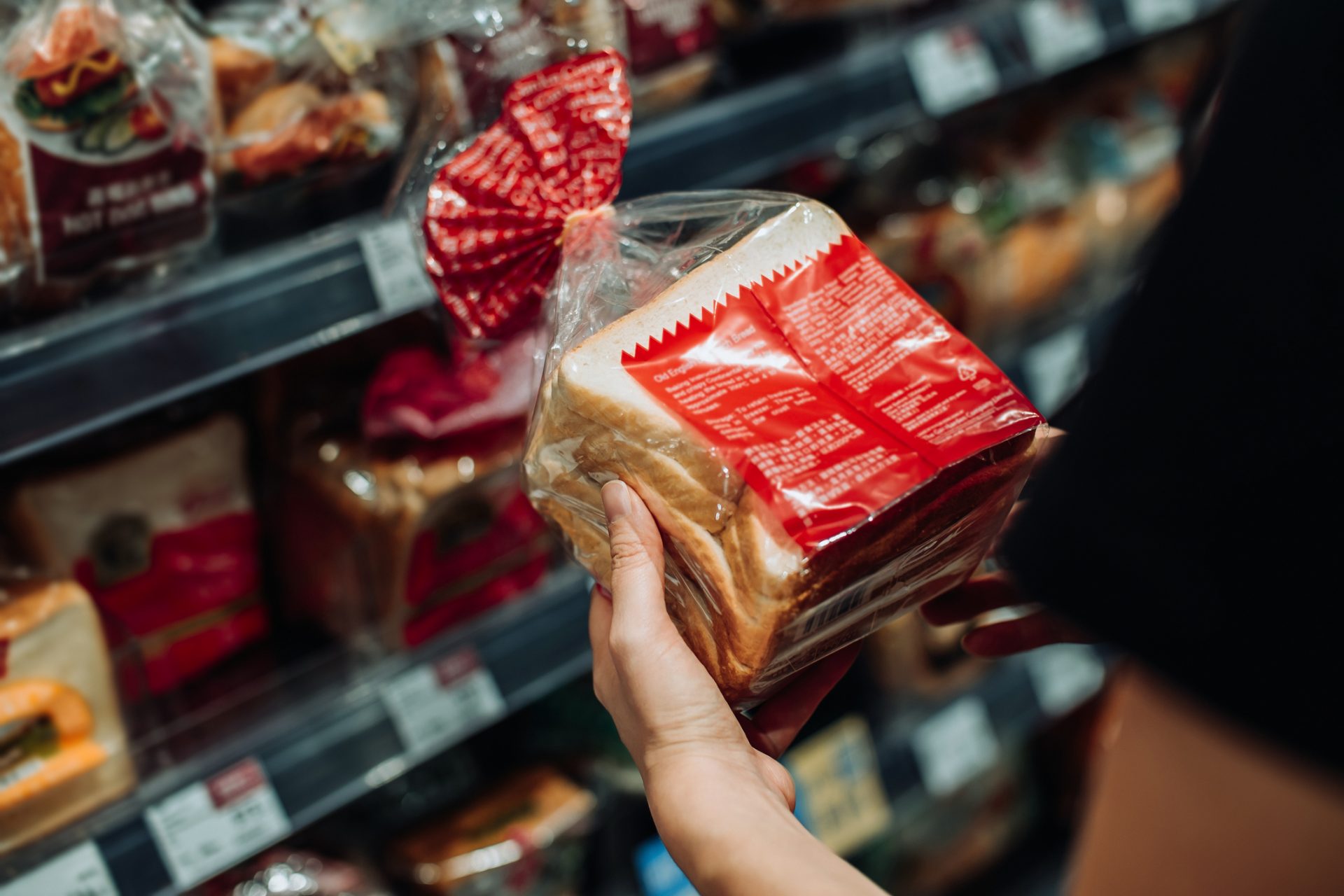California banned a dangerous food additive that's still in most American bread
In October 2023, California became the first state in America to ban four harmful food additives that have been linked to cancer and a wide array of diseases. Bromated vegetable oil, red dye 3, propylparaben, and a complex additive known as potassium bromate were banned.
"Californians will still be able to access and enjoy their favorite food products, with greater confidence in the safety of such products," said Governor Gavin Newsom according to a CBS News report. The ban isn't set to take effect until 2027, a fact that Newsom noted gave companies time to "revise their recipes."
Many of the four additives have been banned in countries all around the world, but they can be found in everything from candies and cookies to fruit juice and bread in the US. However, the most interesting of the additives banned was potassium bromate, which is found throughout the US food supply.
Potassium bromate is a relatively common food additive found in American bread, and it's used by the food industry to help strengthen dough according to the New York Post.
Unfortunately for Americans, potassium bromate’s use in food production has been banned in Europe and countries like India and China for being a “suspected carcinogen” the Post added.
In February 2023, concerns about potassium bromate in the US food supply made the news after Erik Millstone, an expert on food additives at the University of Sussex, sat down with CBS News’ Norah O’Donnell on Evening News to discuss the dangers of the food additive.
In the interview, Millstone told O’Donnell he believed that the potassium bromate added to American bread was “almost certainly” making them sick.
“There is evidence that it may be toxic to human consumers, that it may even either initiate or promote the development of tumors," Millstone told O’Donnell, and he wasn’t wrong about there being evidence that potassium bromate could make people sick.
The international community has known since at least the early 1990s that potassium bromate could be linked to thyroid and kidney cancer in rats, and some countries have taken action to ban the chemical, while others like the United States, have not.
In 1990, a group of Japanese scientists published an article in the peer-reviewed journal Environmental Health Perspectives which concluded that potassium bromate should be considered a renal carcinogen based on its effect on the human body.
The study concluded that flour treated with potassium bromate was carcinogenic in “rats and nephrotoxic in both man and experimental animals when given orally.”
The authors of the study added that potassium bromate induced “renal cell tumors, mesotheliomas of the peritoneum, and follicular cell tumors of the thyroid.”
It was this research that eventually lead the International Agency for Research on Cancer to list potassium bromate as a category 2B carcinogen according to Rick Paulas of KCET, a PBS television affiliate.
"Because of this, the substance was banned in a number of countries, including Argentina, Brazil, Canada, Nigeria, South Korea, Peru, Sri Lanka, China, and the European Union,” Paulas added.
CBS News contacted the U.S. Food and Drug Administration at the time of its reporting and asked just that question. However, the new organization was told in a statement that all food additives needed "pre-market evaluation" as well as regulations that required "evidence that each substance is safe at its intended level of use before it may be added to foods."
"Post-approval, our scientists continue to review relevant new information to determine whether there are safety questions and whether the use of such substance is no longer safe," the U.S. Food and Drug Administration statement continued.
“The system for ensuring that ingredients added to food are safe is broken,” Lisa Lefflerts told The Guardian’s Troy Farah in 2019. Lefflerts was a senior scientist at the Center for Science in the Public Interest at the time and played a role in petitioning the FDA to ban the use of potassium bromate, a petition that was turned down because of “other agency priorities” according to The Guardian.
Today potassium bromate is a fully legal food additive in most United States, along with other dangerous chemicals banned in Europe like titanium dioxide, brominated vegetable oil, and propylparaben. However, a few of these will no longer be a problem in California after 2027.
“This is a milestone in food safety, and California is once again leading the nation,” Environmental Working Group President Ken Cook said about Governor Newsom's decision to ban potassium bromate and the 3 other food additives. “We applaud Gov. Newsom for signing this landmark bill and putting the health of Californians before the interests of industry.
More for you
Top Stories
































